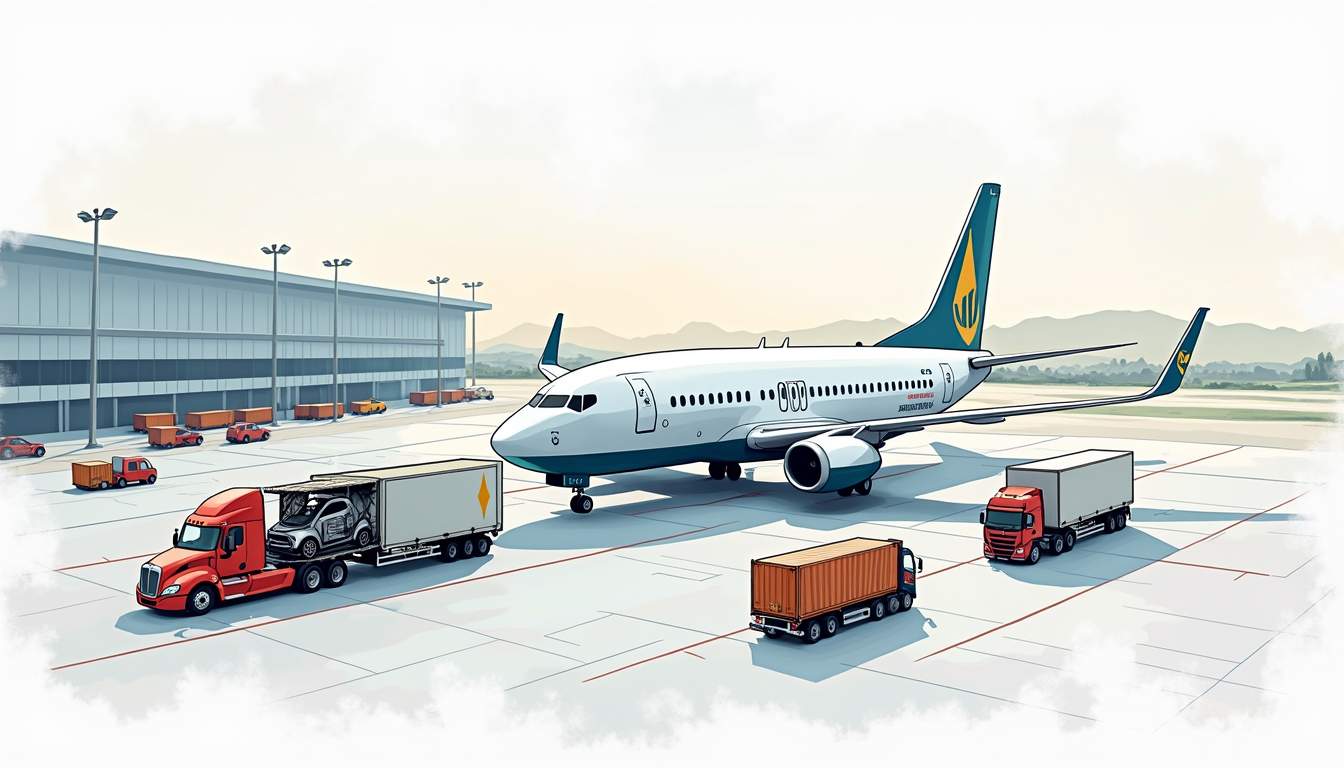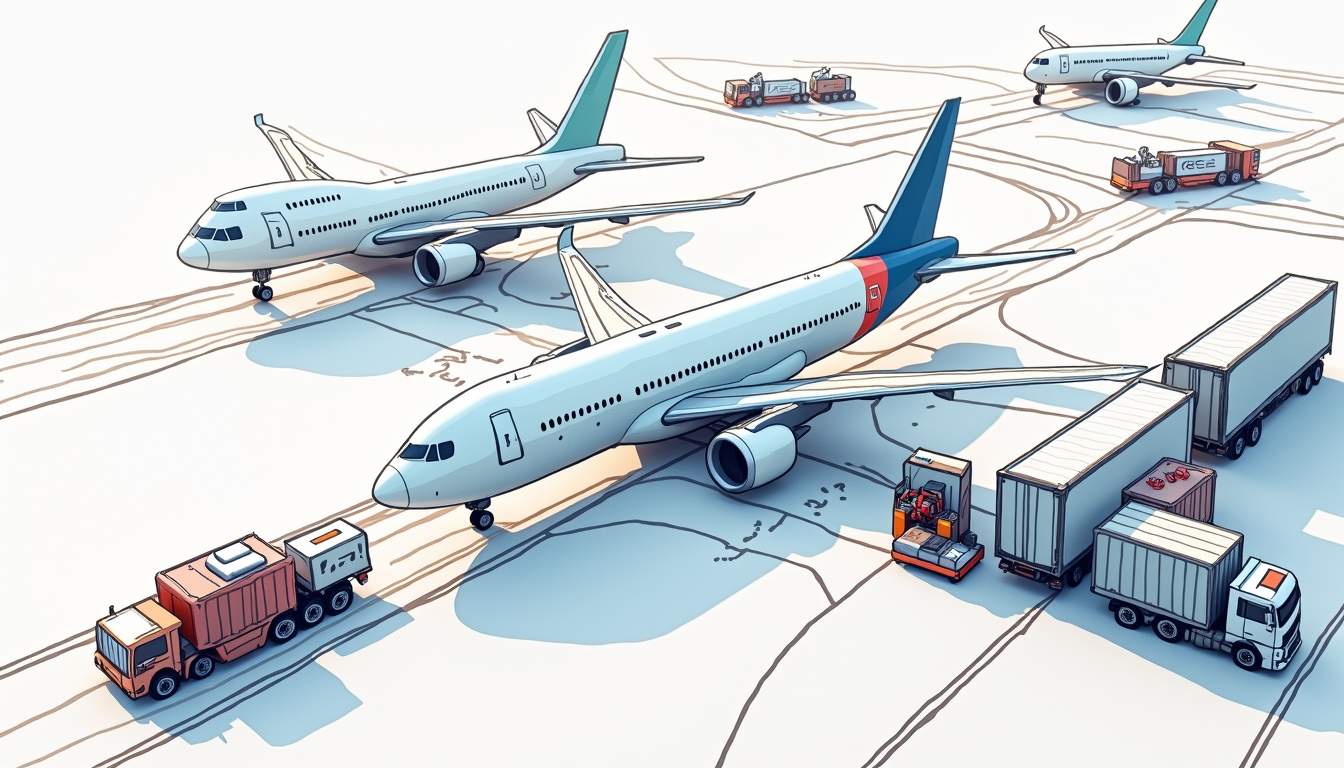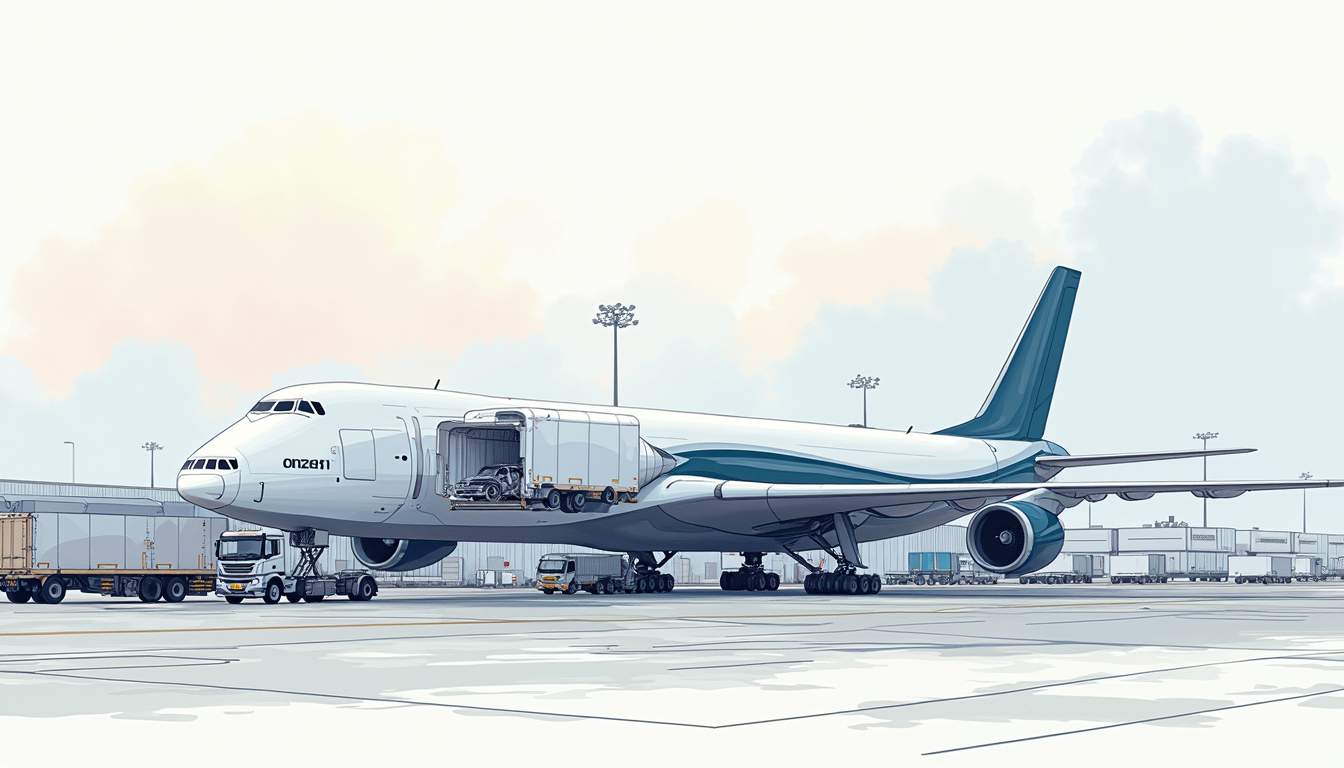In the fast-paced world of automotive manufacturing, timely delivery of parts and components is crucial. As the industry evolves, so do the logistics solutions that support it. Air freight has emerged as a vital option for automotive suppliers, offering speed and efficiency that can make a significant difference in production timelines. This article explores various air freight solutions tailored for automotive suppliers, highlighting their benefits, challenges, and the best practices to optimize this mode of transport.
The Importance of Air Freight in the Automotive Industry
Air freight plays a pivotal role in the automotive supply chain, especially when it comes to meeting tight deadlines and maintaining production schedules. With global supply chains becoming increasingly complex, the need for rapid transportation solutions has never been more pronounced.

Speed and Reliability
One of the primary advantages of air freight is its speed. Unlike sea or land transport, which can take days or weeks, air freight can deliver goods in a matter of hours. This is particularly beneficial for automotive suppliers who need to respond quickly to unexpected demand or supply chain disruptions. The reliability of air freight also ensures that parts arrive on time, minimizing the risk of production delays.
Moreover, the speed of air freight not only helps in maintaining production schedules but also plays a crucial role in inventory management. By reducing the time goods spend in transit, companies can adopt just-in-time inventory practices, which minimize storage costs and reduce the risk of overstocking. This efficiency is vital in an industry where the cost of holding inventory can significantly impact profitability. As automotive manufacturers strive to enhance their operational efficiency, the role of air freight becomes even more critical.
Global Reach
Air freight services connect suppliers and manufacturers across the globe. This is especially important for automotive companies that source components from various countries. With air transport, suppliers can easily reach international markets, allowing them to tap into a wider range of resources and suppliers, ultimately enhancing their competitiveness.
Types of Air Freight Services
Understanding the different types of air freight services available can help automotive suppliers choose the most suitable option for their needs. Each service has its own set of advantages and considerations, allowing businesses to tailor their logistics strategies effectively.
Express Air Freight
Express air freight is designed for urgent shipments that require immediate delivery. This service is often used for critical components that are needed to keep production lines running smoothly. While express services can be more costly, the trade-off is often worth it for the peace of mind and operational continuity they provide. Many express air freight providers also offer tracking capabilities, enabling suppliers to monitor their shipments in real-time. This transparency is crucial in industries like automotive manufacturing, where delays can lead to significant financial losses and disruptions in production schedules.
Standard Air Freight
For less time-sensitive shipments, standard air freight offers a more economical solution. This service typically takes a bit longer than express options but is still significantly faster than sea freight. Automotive suppliers can utilize standard air freight for routine shipments or when they have a bit more flexibility in their delivery schedules. Additionally, standard air freight often allows for larger shipments at a reduced cost per unit, making it an attractive choice for bulk orders of parts that are not urgently needed. Suppliers can also benefit from scheduling regular shipments, which can help in managing inventory levels more effectively and ensuring a steady supply of components without incurring the higher costs associated with express services.
Charter Services
In situations where large volumes of goods need to be transported quickly, charter air freight services can be an ideal solution. These services allow suppliers to book an entire aircraft for their shipment, which can be particularly beneficial during peak production periods or when launching new vehicle models. Charter services provide the flexibility to adjust to fluctuating demand while ensuring timely delivery. Furthermore, chartering an aircraft can also facilitate the transportation of oversized or heavy cargo that may not fit within the constraints of standard air freight options. This capability is especially important in the automotive industry, where specialized machinery or large components may be required for assembly lines. By utilizing charter services, suppliers can maintain their competitive edge and meet the demands of a fast-paced market.
Challenges of Air Freight for Automotive Suppliers
While air freight offers numerous benefits, it is not without its challenges. Automotive suppliers must navigate various factors that can impact their logistics strategies.
Cost Considerations
Air freight is generally more expensive than other modes of transport. The cost can be a significant factor for automotive suppliers, especially when dealing with large volumes of parts. Suppliers need to weigh the urgency of their shipments against the associated costs and determine the best balance for their operations. Additionally, fluctuations in fuel prices and currency exchange rates can further complicate cost predictions. As a result, many suppliers are increasingly adopting just-in-time inventory practices to minimize the need for air freight, although this approach also carries its own risks, particularly if unexpected delays occur.
Regulatory Compliance
Shipping automotive parts internationally involves navigating complex regulations and compliance requirements. Each country has its own set of rules regarding the import and export of goods, which can complicate logistics. Suppliers must stay informed about these regulations to avoid delays and potential fines. Moreover, the automotive industry is subject to stringent safety and quality standards, which necessitate thorough documentation and certification for each shipment. This adds another layer of complexity, as suppliers must ensure that all parts meet the necessary specifications before they can be transported, often requiring coordination with multiple stakeholders across different regions.
Capacity Constraints
Airlines often face capacity constraints, particularly during peak seasons or when demand surges unexpectedly. This can lead to delays in shipment schedules and increased costs. Automotive suppliers must plan ahead and maintain good relationships with air freight carriers to secure the necessary capacity when needed. Furthermore, the rise of e-commerce has intensified competition for available cargo space, as more businesses seek to expedite their shipments. Suppliers may find themselves competing not only with other automotive companies but also with retailers and manufacturers from various industries, making it essential to develop strategic partnerships and explore alternative logistics solutions to mitigate the impact of these capacity challenges.
Best Practices for Optimizing Air Freight Solutions
To maximize the benefits of air freight, automotive suppliers can implement several best practices that enhance efficiency and reduce costs.

Collaborate with Logistics Partners
Building strong relationships with logistics providers can lead to better service and more favorable rates. Automotive suppliers should seek out partners who understand the unique challenges of the automotive industry and can offer tailored solutions. Regular communication and collaboration can help streamline operations and improve overall supply chain performance.
Invest in Technology
Utilizing technology can significantly enhance air freight logistics. Advanced tracking systems allow suppliers to monitor shipments in real-time, providing visibility and control over the supply chain. Additionally, data analytics can help suppliers optimize their shipping routes and schedules, reducing costs and improving efficiency.
Plan for Contingencies
Given the unpredictable nature of global supply chains, having contingency plans in place is essential. Automotive suppliers should prepare for potential disruptions by identifying alternative shipping routes and carriers. This proactive approach can help mitigate risks and ensure continuity in operations.
The Future of Air Freight in the Automotive Sector
As the automotive industry continues to evolve, so too will the air freight solutions that support it. Several trends are shaping the future of air freight for automotive suppliers.

Sustainability Initiatives
With increasing pressure to reduce carbon footprints, the aviation industry is exploring more sustainable practices. Innovations such as biofuels and more efficient aircraft designs are being developed to minimize environmental impact. Automotive suppliers will need to stay informed about these advancements and consider them in their logistics strategies.
Integration of E-commerce Logistics
The rise of e-commerce is influencing air freight logistics, leading to more streamlined processes and faster delivery times. Automotive suppliers can leverage these advancements to enhance their supply chain efficiency. By integrating e-commerce logistics into their operations, suppliers can better meet customer demands and improve overall service levels.
Technological Advancements
Emerging technologies such as artificial intelligence (AI) and blockchain are set to revolutionize air freight logistics. AI can optimize routing and scheduling, while blockchain can enhance transparency and security in transactions. Automotive suppliers who embrace these technologies will likely gain a competitive edge in the market.
Conclusion
Air freight solutions are essential for automotive suppliers seeking to maintain efficiency and competitiveness in an ever-evolving industry. By understanding the various types of air freight services, recognizing the challenges, and implementing best practices, suppliers can enhance their logistics strategies. As the future unfolds, embracing sustainability and technological advancements will be key to optimizing air freight operations. In a landscape where speed and reliability are paramount, air freight will continue to play a vital role in the success of automotive suppliers worldwide.
Ready to Elevate Your Automotive Logistics?
At Freighter Gator, we understand the critical role that air freight plays in keeping the automotive industry moving. Our bespoke air cargo charter solutions are perfect for automotive suppliers who need to ensure their components arrive swiftly and reliably. With our expertise in handling time-sensitive shipments, you can trust us to deliver your cargo with the utmost efficiency. Don’t let logistics challenges slow down your operations. Request a Quote today and partner with Freighter Gator for air freight services that drive your success.
